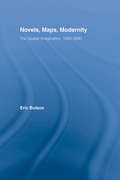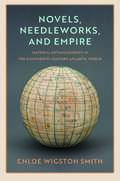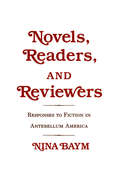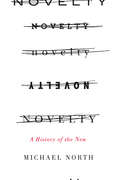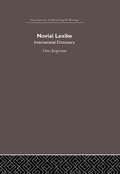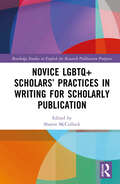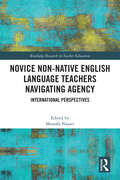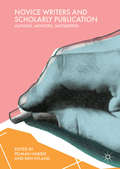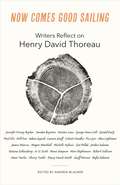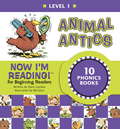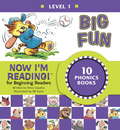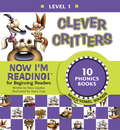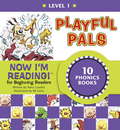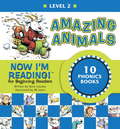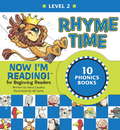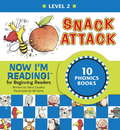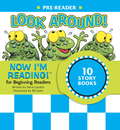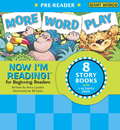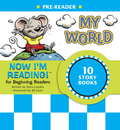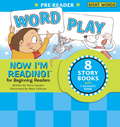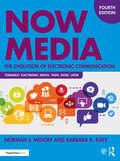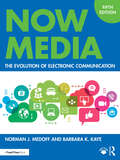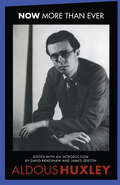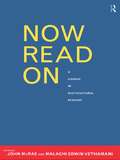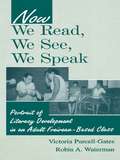- Table View
- List View
Novels, Maps, Modernity: The Spatial Imagination, 1850–2000 (Literary Criticism and Cultural Theory)
by Eric BulsonThis book examines how readers and novelists alike have used maps, guidebooks, and other geographical media to imagine and represent the space of the novel from the mid-nineteenth century to the present.
Novels, Needleworks, and Empire: Material Entanglements in the Eighteenth-Century Atlantic World (The Lewis Walpole Series in Eighteenth-Century Culture and History)
by Chloe Wigston SmithThe first sustained study of the vibrant links between domestic craft and British colonialism In the eighteenth century, women&’s contributions to empire took fewer official forms than those collected in state archives. Their traces were recorded in material ways, through the ink they applied to paper or the artifacts they created with muslin, silk threads, feathers, and shells. Handiwork, such as sewing, knitting, embroidery, and other crafts, formed a familiar presence in the lives and learning of girls and women across social classes, and it was deeply connected to colonialism. Chloe Wigston Smith follows the material and visual images of the Atlantic world that found their way into the hands of women and girls in Britain and early America—in the objects they made, the books they held, the stories they read—and in doing so adjusted and altered the form and content of print and material culture. A range of artifacts made by women, including makers of color, brought the global into conversation with domestic crafts and consequently placed images of empire and colonialism within arm&’s reach. Together, fiction and handicrafts offer new evidence of women&’s material contributions to the home&’s place within the global eighteenth century, revealing the rich and complex connections between the global and the domestic.
Novels, Readers, and Reviewers: Responses to Fiction in Antebellum America
by Nina BaymThis book describes and characterizes responses of American readers to fiction in the generation before the Civil War. It is based on close examination of the reviews of all novels—both American and European—that appeared in major American periodicals during the years 1840–1860, a period in which magazines, novels, and novel reviews all proliferated. Nina Baym makes uses of the reviews to gain information about the formal, aesthetic, and moral expectations of reviewers. Her major conclusion is that the accepted view about the American novel before the Civil War—the view that the atmosphere in America was hostile to fiction—is a myth. There is compelling evidence, she shows, for the existence of a veritable novel industry and, concomitantly, a vast audience for fiction in the 1840s and 1850s.
Novelty: A History of the New
by Michael NorthIf art and science have one thing in common, it’s a hunger for the new—new ideas and innovations, new ways of seeing and depicting the world. But that desire for novelty carries with it a fundamental philosophical problem: If everything has to come from something, how can anything truly new emerge? Is novelty even possible? In Novelty, Michael North takes us on a dazzling tour of more than two millennia of thinking about the problem of the new, from the puzzles of the pre-Socratics all the way up to the art world of the 1960s and ’70s. The terms of the debate, North shows, were established before Plato, and have changed very little since: novelty, philosophers argued, could only arise from either recurrence or recombination. The former, found in nature’s cycles of renewal, and the latter, seen most clearly in the workings of language, between them have accounted for nearly all the ways in which novelty has been conceived in Western history, taking in reformation, renaissance, invention, revolution, and even evolution. As he pursues this idea through centuries and across disciplines, North exhibits astonishing range, drawing on figures as diverse as Charles Darwin and Robert Smithson, Thomas Kuhn and Ezra Pound, Norbert Wiener and Andy Warhol, all of whom offer different ways of grappling with the idea of originality. Novelty, North demonstrates, remains a central problem of contemporary science and literature—an ever-receding target that, in its complexity and evasiveness, continues to inspire and propel the modern. A heady, ambitious intellectual feast, Novelty is rich with insight, a masterpiece of perceptive synthesis.
Novial Lexike
by Otto JespersenFirst published in 2006. Routledge is an imprint of Taylor & Francis, an informa company.
Novice LGBTQ+ Scholars’ Practices in Writing for Scholarly Publication (Routledge Studies in English for Research Publication Purposes)
by Sharon McCullochThis collection brings together perspectives from early-career LGBTQ+ scholars as they navigate the scholarly publishing landscape, highlighting their experiences and challenges in providing greater representation within the academic community and existing scholarship. The volume reflects on the ways in which scholarly output is intricately linked with scholarly identity and the challenges LGBTQ+ scholars face when their scholarly and gender and sexual identities can often seem to be in conflict. The book showcases perspectives from doctoral students and early-career scholars from around the world working across different disciplines, supported by case studies, autoethnographic narratives, and discourse analysis, to explore key issues facing those who identify as LGBTQ+ or who wish to research and publish on topics relating to gender and sexual identity. These include negotiating positionality, the role of writing styles in identity construction for queer scholars, the ways in which publishing gatekeepers perpetuate heteronormativity, and the part support networks play for researchers. The book gives voice to a wider range of scholars towards creating a more inclusive publishing environment and will be of interest to students and researchers who identify as LGBTQ+ and those working in such fields as applied linguistics, English for academic purposes, queer theory, and gender studies.
Novice Non-native English Language Teachers Navigating Agency: International Perspectives (Routledge Research in Teacher Education)
by Nazari, Edited by MostafaThis novel, edited volume looks at a previously under-researched area of language teacher agency and identity by exploring the experience of novice pre- and in-service teachers for whom English is a second language and presents research gathered from Asia, Europe, South America, and the US to bring underrepresented voices to the fore.Divided into three sections together covering chapters on identity, agency, and professional competencies, this book presents qualitative data on the lived experiences of novice teachers and the challenges they face to their sense of agency, from personal histories and backgrounds, institutional demands, and sociocultural pressures. Chapters take a case study approach to provide research on how the transition from theory to in-classroom practice can be eased, and strategies for coping with socio-pedagogical challenges can be found. With contributions from renowned and emerging scholars, ultimately, this book supports a better understanding of how novice teachers can navigate their agencies in a variety of contexts.Engaging with the novel dimension of novice teachers’ agency in order to expand the boundaries of research, this book will appeal to scholars, researchers, and postgraduate students in the fields of teachers and teacher education, initial teacher training, English language teaching and training, and applied linguistics more broadly.
Novice Writers and Scholarly Publication: Authors, Mentors, Gatekeepers
by Ken Hyland Pejman HabibieThis book draws on the perspectives of authors, supervisors, reviewers and editors to present a rich, nuanced picture of the practices and challenges involved in writing for scholarly publication. Organized into four sections, it brings together international experts and junior scholars from a variety of disciplines to examine both publishing experiences and current research in the field. In doing so, it challenges the view that Native English speakers have a relatively easy ride in this process and that it is only English as an Additional Language (EAL) scholars who experience difficulties. The volume highlights central themes of writing for publication, including mentoring and collaborative writing, the writing experience, text mediation, the review process, journal practices and editorial decision-making, and makes a strong case for taking a more inclusive approach to research in this domain. This edited collection will appeal to students and scholars of applied linguistics, English for academic purposes, academic writing, and second language writing.
Now Comes Good Sailing: Writers Reflect on Henry David Thoreau
by Andrew BlaunerFrom twenty-seven of today’s leading writers, an anthology of original pieces on the author of WaldenFeatures essays by Jennifer Finney Boylan • Kristen Case • George Howe Colt • Gerald Early • Paul Elie • Will Eno • Adam Gopnik • Lauren Groff • Celeste Headlee • Pico Iyer • Alan Lightman • James Marcus • Megan Marshall • Michelle Nijhuis • Zoë Pollak • Jordan Salama • Tatiana Schlossberg • A. O. Scott • Mona Simpson • Stacey Vanek Smith • Wen Stephenson • Robert Sullivan • Amor Towles • Sherry Turkle • Geoff Wisner • Rafia Zakaria • and a cartoon by Sandra BoyntonThe world is never done catching up with Henry David Thoreau (1817–1862), the author of Walden, “Civil Disobedience,” and other classics. A prophet of environmentalism and vegetarianism, an abolitionist, and a critic of materialism and technology, Thoreau even seems to have anticipated a world of social distancing in his famous experiment at Walden Pond. In Now Comes Good Sailing, twenty-seven of today’s leading writers offer wide-ranging original pieces exploring how Thoreau has influenced and inspired them—and why he matters more than ever in an age of climate, racial, and technological reckoning.Here, Lauren Groff retreats from the COVID-19 pandemic to a rural house and writing hut, where, unable to write, she rereads Walden; Pico Iyer describes how Thoreau provided him with an unlikely guidebook to Japan; Gerald Early examines Walden and the Black quest for nature; Rafia Zakaria reflects on solitude, from Thoreau’s Concord to her native Pakistan; Mona Simpson follows in Thoreau’s footsteps at Maine’s Mount Katahdin; Jennifer Finney Boylan reads Thoreau in relation to her experience of coming out as a trans woman; Adam Gopnik traces Thoreau’s influence on the New Yorker editor E. B. White and his book Charlotte’s Web; and there’s much more.The result is a lively and compelling collection that richly demonstrates the countless ways Thoreau continues to move, challenge, and provoke readers today.
Now I'm Reading! Level 1: Animal Antics
by Nora Gaydos B. B. SamsTEACH YOUR CHILD TO READ WHILE HAVING FUN! Simple, patterned stories and strong picture cues help children build essential skills in Level 1 of this award-winning learn-to-read series.The Now I'm Reading! books offer a comprehensive approach that integrates the best of phonics and storytelling to help young readers take the first steps toward independent reading success.In LEVEL 1: ANIMAL ANTICS, children learn essential phonics skills while reading humorous stories featuring fun animal heros. Stories 1-5 focus on mostly three-letter short-vowel words, some consonant blends, and early sight words. Stories 6-10 progress to mostly four-letter short-vowel words, plus additional sight words and consonant blends. All stories feature hilarious pictures and stories that will have children excited to read them again and again!Inside this eBook, you'll find:· 10 stories with colorful illustrations and engaging text· "After You Read" extended activity sections· A Parent/Teacher Guide to help you figure out the best ways to use these booksPerfect for ages 4 and up! Level 1 NIR readers focus on short-vowel sounds, simple consonant sounds, and beginning sight word introduction.The concepts and skill progression in the NIR series are aligned to meet Common Core State Standards. This book is Fountas & Pinnell Leveled with a range of C-F; information on individual booklet levels and Lexile Measures is available at the Now I'm Reading website.
Now I'm Reading! Level 1: Big Fun
by Nora GaydosIn LEVEL 1: BIG FUN, children learn essential phonics skills while reading humorous stories featuring fun animal heroes. The stories focus on short-vowel words, consonant blends and digraphs, and early sight words. Each story uses three- and four-letter words to keep the text age-appropriate and are "just right" for building self-confidence along with reading skills!
Now I'm Reading! Level 1: Clever Critters
by Nora GaydosLearn all about mixed-vowel sounds with a hot yak, a sniffing sloth, a pet bat, and other clever critters in this collection of early-reader tales! Each of the stories in LEVEL 1: CLEVER CRITTERS focuses on one specific mixed-vowel sound and uses simple, clear text and a building-block approach to help beginning readers have fun while learning key words.
Now I'm Reading! Level 1: Playful Pals
by Nora Gaydos B. B. SamsTEACH YOUR CHILD TO READ WHILE HAVING FUN! Simple, patterned stories and strong picture cues help children build essential skills in Level 1 of this award-winning learn-to-read series.The Now I'm Reading! books offer a comprehensive approach that integrates the best of phonics and storytelling to help little ones take the first steps toward independent reading success.In LEVEL 1: PLAYFUL PALS, children learn essential phonics skills while reading humorous stories featuring fun animal heroes. The stories focus on short-vowel words, consonant blends, and early sight words. Each story uses three- and four-letter words to keep the text age-appropriate, and is "just right" for building self-confidence along with skill!Inside this eBook, you'll find:· 10 stories with colorful illustrations and engaging text· "After You Read" extended activity sections· A Parent/Teacher Guide to help you figure out the best ways to use these booksPerfect for ages 4 and up! Level 1 NIR readers focus on short-vowel sounds,simple consonant sounds, and beginning sight words.The concepts and skill progression in the NIR series are aligned to meet Common Core State Standards. This book is Fountas & Pinnell Leveled with a range of D-F; information on individual booklet levels and Lexile Measures is available at the Now I'm Reading website.
Now I'm Reading! Level 2: Amazing Animals
by Nora Gaydos B. B. SamsLEARN TO READ WHILE HAVING FUN! Level 2 of this award-winning learn-to-read series continues to help children develop the skills they need for independent reading success.The Now I'm Reading! books offer a comprehensive approach that integrates the best of phonics and storytelling to help young readers take their first steps toward reading success.In LEVEL 2: AMAZING ANIMALS, children learn essential phonics skills while reading humorous stories featuring fun animal heroes--like an ape baking a cake for his date, a goat in a boat that won't float, and more! Using an effective step-by-step approach that pairs patterned text with strong picture cues, the stories in this collection introduce children to long-vowel sounds, consonant blends, word endings, and key sight words.Inside this eBook, you'll find:· 10 stories with colorful illustrations and engaging text· "After You Read" extended activity sections· A Parent/Teacher Guide to help you figure out the best ways to use these booksPerfect for ages 4 and up! Level 2 NIR readers focus on long- and short-vowel sounds, expanded simple consonant sounds, and beginning sight word reinforcement.The concepts and skill progression in the NIR series are aligned to meet Common Core State Standards. This book is Fountas & Pinnell Leveled with a range of E-G; information on individual booklet levels and Lexile Measures is available at the Now I'm Reading website.
Now I'm Reading! Level 2: Rhyme Time
by Nora GaydosWhich bird has the best nest—the one in the east or the one in the west? And will a dog dad and his pups be able to find a tent to rent that only costs one cent? Find out with the stories in LEVEL 2: RHYME TIME! Each story focuses on one specific rhyming sound (like -ing, -ent, or -ick), and uses simple, clear text and a building-block approach to help beginning readers have fun while learning key words.
Now I'm Reading! Level 2: Snack Attack
by Nora Gaydos B. B. SamsLEARN TO READ WHILE HAVING FUN! Level 2 of this award-winning learn-to-read series continues to help children develop the skills they need for independent reading success.The Now I'm Reading! books offer a comprehensive approach that integrates the best of phonics and storytelling to help young readers take their first steps toward reading success.Yum, snacks! In LEVEL 2: SNACK ATTACK, children learn essential phonics skills while reading humorous stories featuring fun animal heroes. Using an effective step-by-step approach that pairs patterned text with strong picture cues, the stories in this collection introduce children to long-vowel sounds, consonant blends, sight words, and word endings.Inside this eBook, you'll find:· 10 stories with colorful illustrations and engaging text· "After You Read" extended activity sections· A Parent/Teacher Guide to help you figure out the best ways to use these booksPerfect for ages 4 and up! Level 2 NIR readers focus on long- and short-vowelsounds, expanded simple consonant sounds, and beginning sight word reinforcement. The concepts and skill progression in the NIR! series are aligned to meet Common Core State Standards. This book is Fountas & Pinnell Leveled with a range of D-H; information on individual booklet levels and Lexile Measures is available at the Now I'm Reading website.
Now I'm Reading! Pre-Reader: Look Around!
by Nora Gaydos B. B. SamsTEACH YOUR CHILD TO READ WHILE HAVING FUN! Simple sentences and strong picture cues help guide young children to reading success with this award-winning learn-to-read series.What could be more exciting than hearing your child read a book to you for the first time? The Now I'm Reading! books for emerging readers are just right for children who want to read but aren't quite ready to sound out words using phonics. At the Pre-Reader level, each of the 10 stories in LOOK AROUND! uses a proven system of simple, patterned text and strong visual cues to build confidence in the earliest readers. Each story focuses on a specific early-learning concept (like colors, animals, family, and shapes) to help kids feel like "real" readers as they learn simple sight words and reading habits.Inside this eBook, you'll find:· 10 stories with colorful illustrations and engaging text· "Words to Know" and "Stretch Your Mind" activity sections· A Parent/Teacher Guide to help you figure out the best ways to use these booksPerfect for ages 3 and up! Books in the NIR Pre-Reader Level focus on read-along stories, strong picture clues, predictable patterned text, and letter and sound recognition.The concepts and skill progression in the NIR! series are aligned to meet Common Core State Standards. This book is Fountas & Pinnell Level A/B; information on individual booklet levels and Lexile Measures is available at the Now I'm Reading website.
Now I'm Reading! Pre-Reader: More Word Play
by Nora GaydosWhat could be more exciting than hearing your child read a book to you for the first time? The Now I'm Reading! books for emerging readers are just right for children who want to read but aren't quite ready to sound out words using phonics.
Now I'm Reading! Pre-Reader: My World
by Nora Gaydos B. B. SamsTEACH YOUR CHILD TO READ WHILE HAVING FUN! Simple sentences and strong picture cues help guide young children to reading success with this award-winning learn-to-read series.What could be more exciting than hearing your child read a book to you for the first time? The Now I'm Reading! books for emerging readers are just right for children who want to read but aren't quite ready to sound out words using phonics. Each of the 10 stories in PRE-READER: MY WORLD uses a proven system of simple, patterned text and strong picture cues to build confidence in the earliest readers. Each booklet focuses on a specific early-learning concept (like opposites, farm animals, and movement) to help kids feel like "real" readers as they learn simple sight words.Inside this eBook, you'll find:· 10 story booklets with colorful illustrations and engaging text· 40 reward stickers to encourage completion and rereading· "Words to Know" and "Stretch Your Mind" activity sections· Parent/Teacher Guide to help you figure out the best ways to use these booksPerfect for ages 3 and up! Books in the NIR Pre-Reader Level focus on read-along stories, strong picture clues, predictable patterned text, and letter and sound recognition.The concepts and skill progression in the NIR! series are aligned to meet Common Core State Standards. This book is Fountas & Pinnell Level A-E; information on individual booklet levels and Lexile Measures is available at the Now I'm Reading website.
Now I'm Reading! Pre-Reader: Word Play
by Mary Sullivan Nora GaydosTEACH YOUR CHILD TO READ WHILE HAVING FUN! Simple sentences and strong picture cues help guide young children to reading success with this award-winning learn-to-read series.What could be more exciting than hearing your child read a book to you for the first time? The Now I'm Reading! books for emerging readers are just right for children who want to read but aren't quite ready to sound out words using phonics.Each of the 8 stories in PRE-READER: WORD PLAY uses a proven system of simple, patterned text and strong picture cues to build confidence in the earliest readers. Each booklet focuses on at least 2 specific high-frequency sight words, which are introduced in an appropriate and organized sequence.Inside the CD binder-like package, you'll find:· 8 stories with engaging text and fun illustrations· "Words to Know" and "Stretch Your Mind" activity sections· Parent/Teacher Guide to help get the most out of each story· Activity Book with suggestions for ways to expand your pre-reader's skillsPerfect for ages 3 and up! Books in the NIR Pre-Reader Level focus on read-along stories, strong picture clues, predictable patterned text, and letter and sound recognition.The concepts and skill progression in the NIR! series are aligned to meet Common Core State Standards. This book is Fountas & Pinnell Level LB-A; information on individual booklet levels and Lexile Measures is available at the Now I'm Reading website.
Now Media: The Evolution of Electronic Communication
by Barbara K. Kaye Norman J. MedoffNow in its fourth edition, this book is one of the leading texts on the evolution of electronic mass communication in the last century, giving students a clear understanding of how the media of yesterday shaped the media world of today. Now Media, Fourth Edition (formerly Electronic Media: Then, Now, Later) provides a comprehensive view of the beginnings of electronic media in broadcasting and the subsequent advancements into ‘now’ digital media. Each chapter is organized chronologically, starting with the electronic media of the past, then moving to the media of today, and finally, exploring the possibilities for the media of the future. Topics include the rise of social media, uses of personal communication devices, the film industry, and digital advertising, focusing along the way on innovations that laid the groundwork for ‘now’ television and radio and the Internet and social media. New to the fourth edition is a chapter on the amazing world of virtual reality technology, which has spawned a ‘now’ way of communicating with the world and becoming a part of video content, as well as a discussion of the impacts of the COVID-19 pandemic on media consumption habits. This book remains a key text and trusted resource for students and scholars of digital mass communication and communication history alike. The new ‘now’ edition also features updated online instructor materials, including PowerPoint slides and test banks. Please visit www.routledge.com/cw/medoff to access these support materials.
Now Media: The Evolution of Electronic Communication
by Barbara K. Kaye Norman J. MedoffNow in its fifth edition, this book is one of the leading texts on the evolution of electronic mass communication in the last century, giving students a clear understanding of how the media of yesterday shaped the media world of today.Now Media provides a comprehensive view of the development of media and the subsequent advancements into ‘now’ digital media. Each chapter is organized chronologically, starting with print, radio, and television, then moving to the ‘now media' of today, and finally exploring possibilities for the media of the future. Topics include the rise of social media, uses of personal communication devices, the film industry, virtual reality, digital advertising, and the innovations that laid the groundwork for ‘now media.' This fully updated fifth edition features new chapters on video games and the business of, and careers in, ‘now media.' Discussions on rapidly evolving ‘now media' stakeholders, such as influencers and YouTubers are included, and attention is paid to AI throughout the book.This book remains a key text and trusted resource for students and scholars of digital mass communication and communication history alike.
Now More Than Ever: An Edition
by Aldous HuxleyOver the course of his career, British writer Aldous Huxley (1894-1963) shifted away from elitist social satires and an atheistic outlook toward greater concern for the masses and the use of religious terms and imagery. This change in Huxley's thinking underlies the previously unpublished play Now More Than Ever. Written in 1932-1933 just after Brave New World, Now More Than Ever is a response to the social, economic, and political upheavals of its time. Huxley's protagonist is an idealistic financier whose grandiose schemes for controlling the means of production drive him to swindling and finally to suicide. His fate allows Huxley to expose the evils he perceives in free-market capitalism while pleading the case for national economic planning and the rationalization of Britain's industrial base. This volume contains the full text of Now More Than Ever, which was believed to be lost until 1976, when a copy was found at the Harry Ransom Humanities Research Center of the University of Texas at Austin. A "thinker's play" that has never been produced on stage, it is the last previously unpublished piece of Huxley's major writings and immensely important to understanding his development as a writer. The editors of this volume have annotated the play for contemporary readers. Their introduction sets the play in the context of Huxley's intellectual life.
Now Read On: A Course in Multicultural Reading
by Malachi Edwin Vethamani John McRaeNow Read On brings together literatures in English from around the world, combining an excellent choice of texts with sound methodological guidance.It contains approximately eighty texts and extracts from countries andcontinents including:*Africa*Australia*Great Britain*India*Malaysia*New Zealand*Philippines*SingaporeDesigned as course for both native and non-native English-speakers in how to read literature, this anthology begins with shorter starter texts and questions, and develops in complexity as the reader progresses through the book. Now Read On provides the user with*hands-on experience of working with a plurality of texts from around the world*questions, exercises, pointers and commentary, accompanying all the passages of literature, and providing the student with the tools and confidence to critically evaluate any text*an understanding of the major genres - poetry, short stories, drama and novels.
Now We Read, We See, We Speak: Portrait of Literacy Development in an Adult Freirean-Based Class
by Victoria Purcell-Gates Robin A. WatermanNow We Read, We See, We Speak compellingly captures eight women's progress toward empowerment through a Freirean-based literacy class in rural El Salvador and, in the process, provides telling lessons for literacy and adult educators around the world. This book fills a real gap in the educational literature on critical theory and literacy teaching and learning. For the first time, we have a multi-layered description and analysis of a literacy class based on Freirean precepts and principles, through the perspective of "traditional" literacy theory and as interpreted through a literacy development lens. This allows us to consider how the adult students learned to read and write within a classroom context that embodies such Freirean precepts as dialogic teacher/student relations; respect for and knowledge of the learners' lives, language and culture; and intentionality about social-political change. Thus, this book is directed toward literacy practitioners, teachers, and researchers who may have heard or read about critical theory but have a need for concrete examples of the methodological implications of such theory. Enlivening this account is the compelling description of the histories and lives of the students in the literacy class campesinos women who have survived a brutal and devastating civil war in El Salvador and who, nevertheless, stepped forward to work with a U.S.-trained literacy teacher, Robin Waterman, to learn to read and write for purposes of personal and sociocultural empowerment. The authors provide a highly readable presentation of the historical and cultural contexts for the women and the literacy class. They also raise issues of socioeconomic marginalization, unequal power relationships, and gender as they relate to literacy development. Basing their account on meticulously gathered and analyzed ethnographic data, Purcell-Gates and Waterman go beyond the presentation of the study to suggest implications and issues for adult literacy education in the United States, linking their findings to current topics in adult education, as well as literacy development in general.
